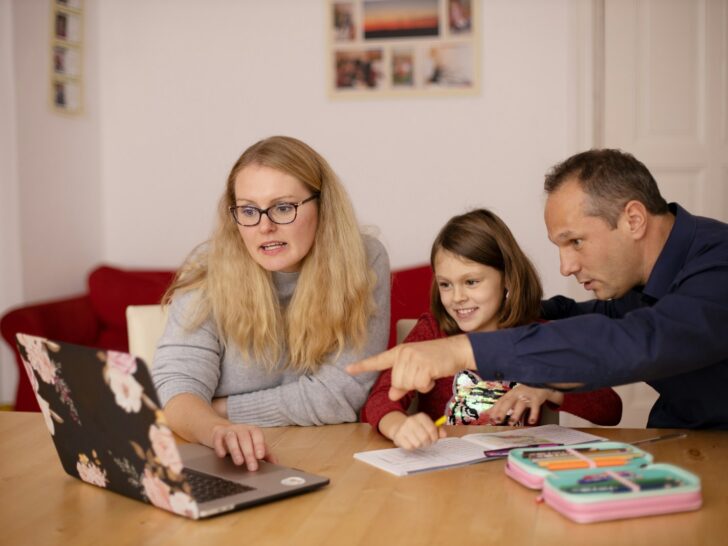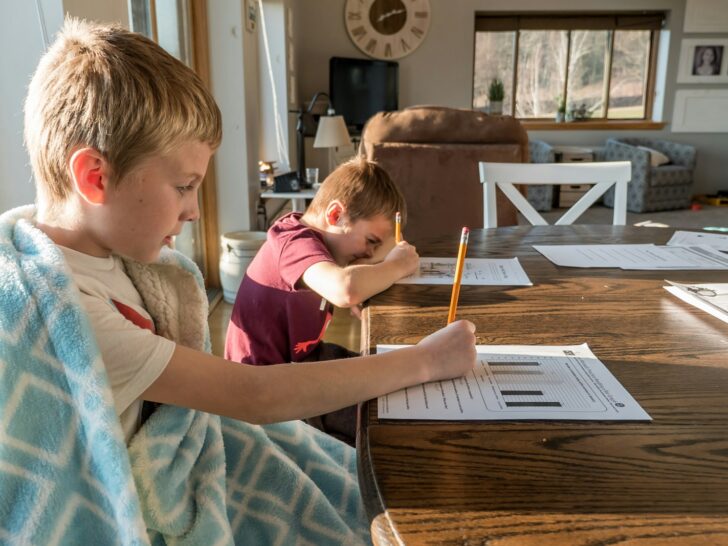In today’s politically charged environment, more parents are becoming concerned about what their children are taught in public schools. As a politically-aware mom deeply invested in the education and well-being of my children, I’ve come to appreciate the immense value of homeschooling. It’s not just about academic flexibility or a personalized learning pace; it’s about ensuring that our kids grow up with the values and beliefs that we hold dear, without the risk of unwanted ideological influences.
Here are ten compelling reasons why homeschooling is an essential alternative for parents looking to protect their children from potential indoctrination in public schools.
1. Control Over Curriculum Content
Homeschooling allows parents to choose exactly what their children are taught. This control over curriculum content ensures that educational materials reflect the values important to the family, rather than the one-size-fits-all approach often found in public schools.
2. Tailored Ideological Exposure
Parents can tailor the ideological exposure that their children receive, emphasizing critical thinking and presenting multiple perspectives to encourage balanced views. This is crucial in fostering an environment where children learn to form their own opinions based on a broad, unbiased view of the world.
3. Protection from Unwanted Doctrines
Homeschooling protects children from being exposed to doctrines that may contradict family values. Whether it’s political, cultural, or moral, parents can filter which ideologies their children are exposed to during their formative years.

4. Enhanced Family Bonding
Homeschooling promotes stronger family relationships, as parents and children spend more time together. This close-knit environment helps reinforce family values and ensures that parents remain the primary influencers in their children’s lives.

5. Emphasis on Individuality
Unlike the often conformist nature of public schooling, homeschooling celebrates individuality. It encourages children to develop their unique identity and think independently, rather than succumbing to peer pressure and groupthink.
6. Focus on Moral and Ethical Education
Homeschooling allows for a greater emphasis on moral and ethical education aligned with family beliefs, which can be glossed over in public schools. Parents can ensure that their children are not just academically proficient but also morally grounded.
7. Avoidance of Political Agendas
With homeschooling, children can avoid the increasingly political agendas that many believe are present in public school systems. It ensures that education is focused on knowledge and skills rather than political correctness or activism.

8. Flexible Discussion of Current Events
Parents can guide discussions about current events to include various viewpoints without the filter of institutional bias. This helps children understand complex issues without being swayed by popular opinion or media bias.
9. Safety from Peer Pressure
Homeschooling minimizes negative peer pressure, which often leads to the assimilation of ideas without proper scrutiny. At home, children can grow and learn at their own pace, free from the pressure to conform to the crowd.
10. Promotion of Parental Philosophy and Beliefs
Ultimately, homeschooling is about instilling a set of philosophies and beliefs that parents deem best. It gives parents the chance to impart their worldview, ensuring that their children adopt these principles organically and deeply.
Homeschooling is not just an educational choice but a lifestyle commitment that many parents make to safeguard their children from what they perceive as indoctrination in public schools. It ensures that education is a true reflection of one’s beliefs and values, promoting an upbringing that aligns with specific moral and ethical standards. For parents who are concerned about their children’s ideological environment, homeschooling offers a compelling alternative to mainstream education.

In recent years, homeschooling has seen a significant uptick in popularity among diverse communities across the United States and beyond.
This surge can be attributed to various factors, including concerns about the educational environment in public schools, the desire for a more tailored educational experience, and the flexibility that homeschooling offers to families. Technology has played a pivotal role in this shift, providing access to an array of resources and connecting homeschooling communities globally, making it easier for parents to share curricula, learning strategies, and support.
The impact of global events has also contributed to the growth of homeschooling.
The COVID-19 pandemic, for instance, forced many families to experiment with home education, revealing both its challenges and benefits. For many, what started as a temporary solution has become a preferred method of education. Parents realized that they could have more direct involvement in their child’s learning and development, and many observed positive changes in their children’s academic performance and emotional well-being. This experience has encouraged a sustained interest in homeschooling even as schools have reopened.
The increasing debate around educational content and school policies has prompted many parents to opt for homeschooling to ensure that their children’s learning environment aligns with their personal values and educational goals.
As public discourse around curriculum standards continues to grow, more parents are choosing homeschooling as a way to opt-out of systems they find problematic. This trend suggests that the movement towards homeschooling is not merely a reaction to short-term circumstances but a long-term shift in how families are approaching education, seeking greater control and satisfaction in their educational choices.

